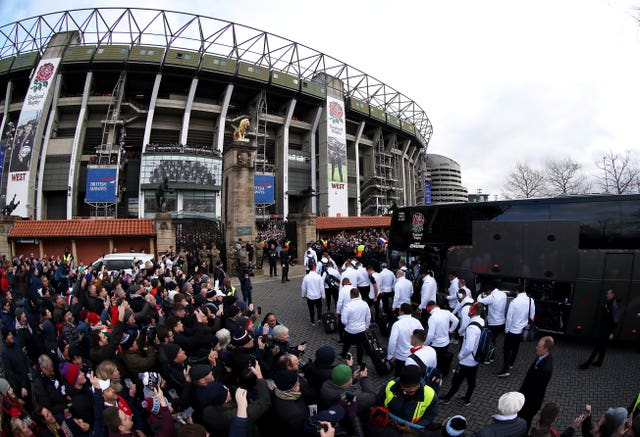The Rugby Football Union is undertaking a review into the "historical context" of Swing Low, Sweet Chariot, a favourite song among England supporters which has roots in American slavery.
The song is routinely seen and heard at Twickenham, with lyrics reproduced on walls at the stadium and sung from the stands, and has been a rugby union anthem for at least three decades.
Its full history goes back much further, though, dating back to its credited author Wallace Willis – a freed slave from 19th century Oklahoma.

It became a popular spiritual in the early 20th century and was popularised again among folk musicians during the civil rights movement of the 1960s. Its current guise as a sporting anthem, anecdotally linked to Martin 'Chariots' Offiah, is one that has come under the microscope before as a potential act of cultural appropriation and current England star Maro Itoje told the Daily Mail this week he felt the lineage was "complicated".
With the ongoing focus on the Black Lives Matters protests, the RFU has decided many who enjoy the song do not know its story and stands ready to address the issue.
A spokesperson said: "The RFU has stated we need to do more to achieve diversity and we are determined to accelerate change and grow awareness.
"The Swing Low, Sweet Chariot song has long been part of the culture of rugby and is sung by many who have no awareness of its origins or sensitivities. We are reviewing its historical context and our role in educating fans to make informed decisions."
Genevieve Glover was recently appointed as chair of the governing body's diversity and inclusion implementation working group, with RFU chairman Bill Sweeney saying: "We need to do more to achieve diversity across all areas of the game, including administration.
"We have undertaken some very good initiatives at grass roots level to encourage more diverse participation, however that in itself is not enough."







